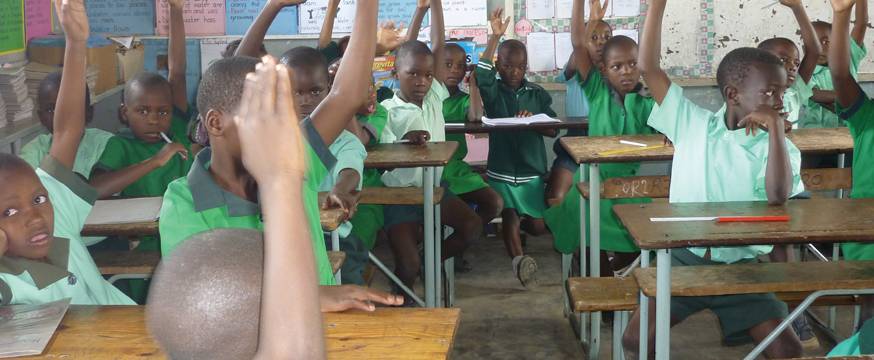
Strengthening education in Zimbabwe
Research 17 Sep 2012 3 minute readACER has been working on the UNICEF funded Zimbabwe Early Learning Assessment program in collaboration with the Zimbabwe Schools Examination Council (ZimSEC) in order to provide educational data for decision making, and to evaluate the impact of the Education Transition Fund.
In 2010 UNICEF and its partners supplied all Zimbabwean schools with resources as part of the multi-donor Education Transition Fund, aimed at attaining quality education and access for all. This was a step towards achieving the Millennium Development Goal of universal primary education by 2015.
In 2008 school attendance rates had been as low as 20 per cent. The education sector has since begun to recover, with education being a key part of the new government’s Short Term Emergency Recovery Programme.
ACER Project Director Dr Rachel Outhred said, ‘Schools in Zimbabwe face major challenges. There is a severe shortage of teaching and learning materials and furniture in schools, many teachers need further professional development, and there are a significant number of orphans and vulnerable children.’
In early 2012, a representative sample of approximately 15 000 Year 3 students in almost 500 schools was assessed in literacy and numeracy, and pupil and head teacher surveys were administered. Results of re-testing over the next three years will be used to identify the extent to which changes are attributable to the Education Transition Fund program interventions.
The study will be able to answer more complex questions than ‘Did the program increase enrolments?’ and ‘Did the program increase the percentage of pupils who can read and write?’
‘We have administered student tests along with questionnaires to collect background data on school and home factors,’ Dr Outhred said.
‘Identifying factors both outside of and within the school that are associated with success, or lack of success, in literacy and numeracy enables us to broaden our understanding of how educational exclusion takes place, and answer complex questions like “Who is the system working for and who is it not working for?”
‘Sector-wide evaluations that measure impact over several years are rare in low-income countries, given the constraints of resources and the length of funding cycles in the development sector. The results of the study will not only provide educational data to inform decision making at a crucial time in Zimbabwe, but also provide evidence regarding the impact of sector-wide approaches in low-income countries,’ Dr Outhred said.
Through the project, ACER will help to build staff capacity in the local education system by providing training in assessment to senior ZimSEC staff.